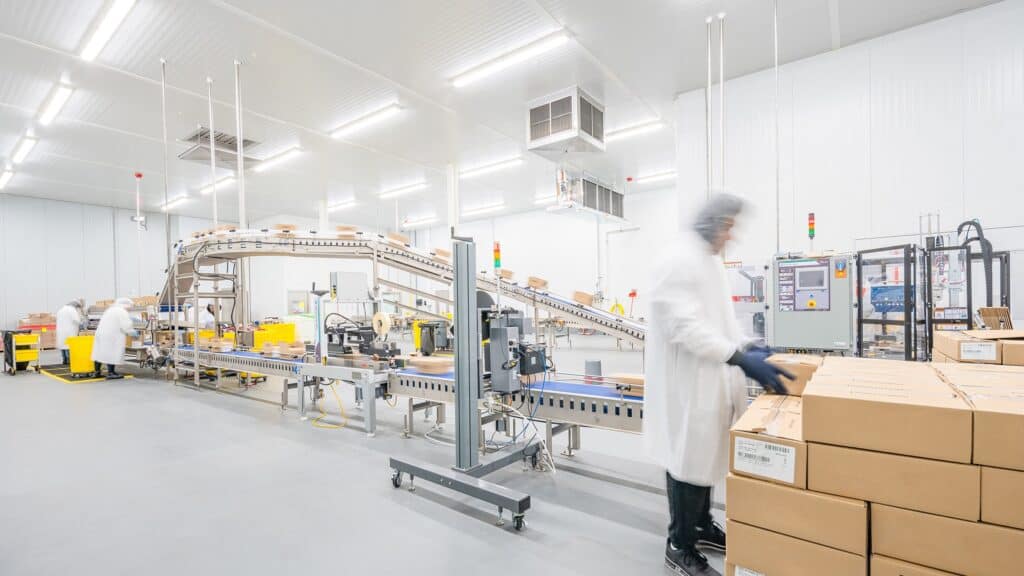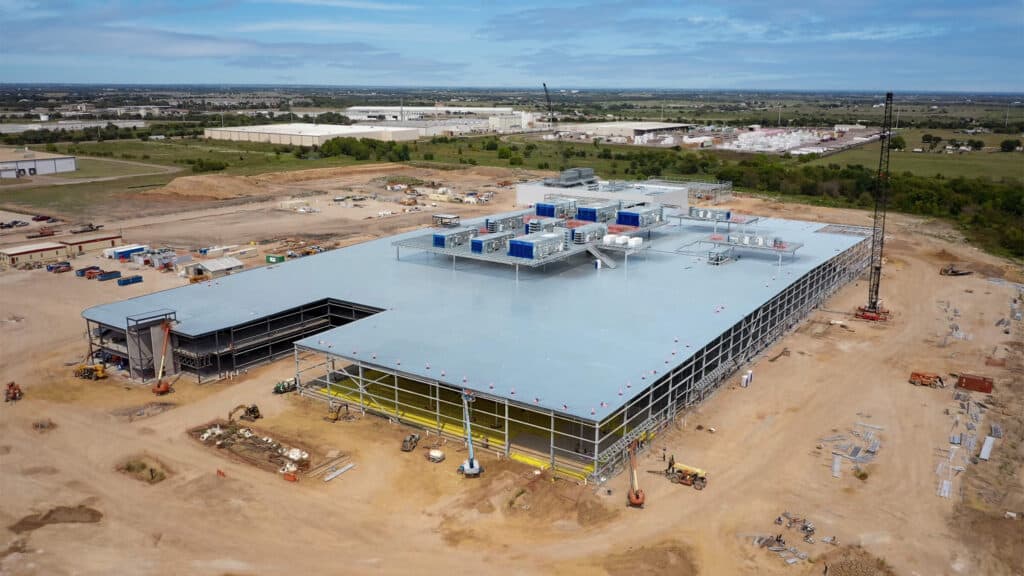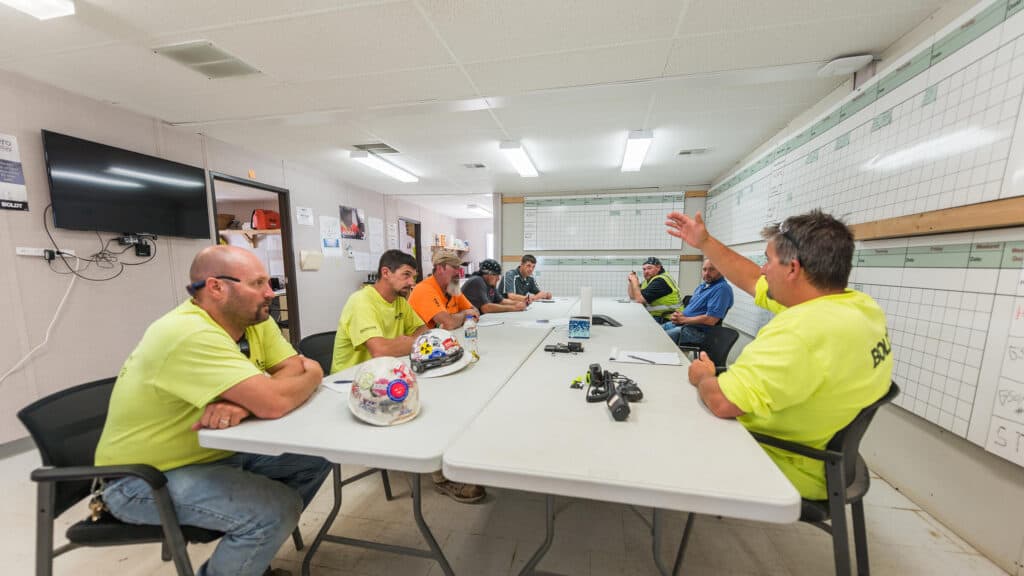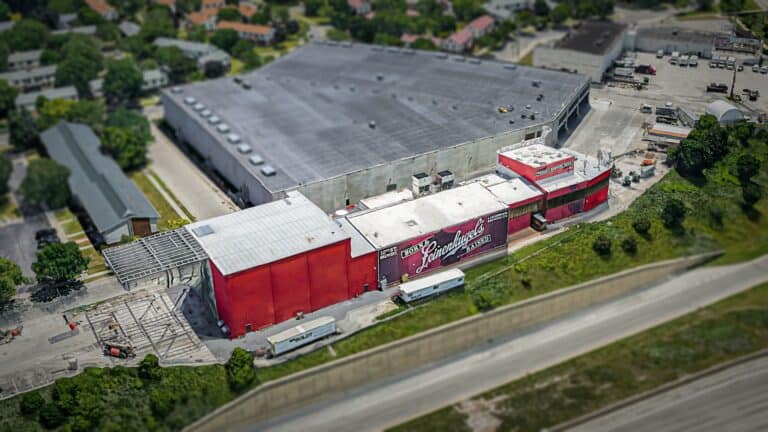Blog
Is the Food and Beverage Industry Finally Ready for Integrated Project Delivery?

While the food and beverage industry is experiencing rapid growth amid increased consumer demand, market conditions are escalating construction costs, eroding profit margins, and delaying projects.
The food and beverage industry appears, on the surface, to be doing just fine. According to Food Dive, food and beverage processing is one of the three most active industrial sectors in America, with a total market value of $1.12. Reported food and beverage construction activity grew 1.3% in 2021 over the previous year, representing a 10-year high-water mark both in total projects over $1 M and new construction as a percentage of all projects.
With growth, comes growing pains and the industry isn’t immune. In their annual survey of top contractors, Food Engineering Magazine found that the top issues affecting food and beverage construction projects were slow project deployment, challenges with controlling costs, and material and equipment procurement2. Similarly, the survey found that the highest area of concern reported by the food and beverage manufacturers was the challenge of increasing production to meet rising consumer demand, even beating out the much-talked-about worker shortage.
“While the need to build is very much still present for our clients, they’re being challenged with a lot of market uncertainty right now, especially with cost.”
Felipe Engineer-Manriquez
Project Delivery Services Director, Boldt
Delving deeper into the source of these issues reveals some all too familiar culprits: supply chain disruptions and rising costs. As the world continues to struggle with the disruptions in manufacturing and shipping from factors like COVID-19 and the war in Ukraine, both lead times and prices for everything from steel and lumber to specialty equipment and hardware have risen dramatically. Coupled with across-the-board inflation, no matter how you slice it, the same construction project today simply costs more than it did last year and significantly more so than years prior.
“The industry is still in a bit of turmoil at the moment,” says Felipe Engineer-Manriquez, Project Delivery Services Director at the Boldt Company. “While the need to build is very much still present for our clients, they’re being challenged with a lot of market uncertainty right now, especially with cost.”
In response to rising costs, food and beverage processors are increasingly emphasizing speed-to-market with their construction projects. Shorter construction durations drive down project costs and allow producers to meet increased consumer demand and generate new revenue, faster. But as manufacturers and their design and construction firms look to accelerate schedules, their efforts are likely to be hindered by the way the industry has long delivered construction projects.

Trouble With Tradition
Commonly referred to as “design-bid-build” (DBB) or “hard bid,” the traditional approach to construction is set up remarkably similar to an assembly line in a factory. Designers and engineers create designs, those designs are sent out to contractors to bid, and the lowest bidder is engaged to build the facility; subcontracting out parts of the work they don’t perform. While in theory this would seem like an efficient, straight forward approach, in practice it’s often anything but. If designs come in over budget — something that’s become increasingly common during the last two years — valuable time is spent redesigning to get the project back in line with the budget. This can both delay the start of construction and cause valued design elements or scope to be cut to reach budget expectations.
“There is a lot that we can do to help our clients’ projects be successful when we’re brought to the table early, even in this current climate.”
As the designs are developed without input from the contractors who will do the actual building, scope can be inadvertently left out of bid documents. This makes it hard to compare bids, potentially causing significant challenges during construction when those gaps are inevitably found. With speed-to-market so critical for project owners, these delays can mean major headaches and substantial budget woes for the project and revenue goals.
It’s against this backdrop that Boldt’s Felipe Engineer-Manriquez says food and beverage processors should start to rethink the conventional wisdom of DBB and look to alternative delivery methods.
“There is a lot that we can do to help our clients’ projects be successful when we’re brought to the table early, even in this current climate,” says Felipe. “Between Boldt and our trade partners, there is a lot of expertise to be leveraged that can deliver projects faster, at higher quality, and with greater cost certainty, but it requires rethinking how these projects have traditionally been planned and built.”

An Integrated Approach
One such delivery method is Integrated Project Delivery, or IPD. IPD first gained a foothold in the construction industry on large, complex healthcare projects but has begun to find adoption throughout a number of markets. Unlike DBB’s siloed approach, IPD is characterized by clients engaging contractors and trade partners early in the design process while designs are still fluid. They work collaboratively with the architects, engineers, and owners to develop designs; reviewing for constructability, offering insights into market conditions, providing estimates throughout the process, and verifying that designs are complete before construction starts. When complications arise in the design stage, the integrated project team uses their collective expertise to develop solutions to keep the schedule and budget intact, like helping select less costly materials or systems, or identifying opportunities for prefabrication or modular construction, both of which can have significant positive impacts on cost and schedule.
“…Upfront collaboration and integration is the best way that we can deliver value for our clients and meet the current market’s challenges…”
At the heart of IPD is a unique contract called an “Integrated Form of Agreement” (IFOA). This contract binds together designers, contractors, and owners into a shared-risk-shared-reward arrangement where project risks are shared by all members of the IPD team, as well as any cost savings. Unlike DBB, where each firm works to protect their own profit margin, IPD breaks down traditional barriers between member firms, making each one responsible for the overall success of the project.
This can be a sticking point for some. “There are a lot of clients, designers and contractors alike that aren’t used to thinking outside of their space and the idea of shared risk can make them uncomfortable,” says Engineer-Manriquez. “At the same time, this upfront collaboration and integration is the best way that we can deliver value for our clients and meet the current market’s challenges, something we’ve seen across numerous IPD projects Boldt has completed.”
Whether the food and beverage industry will depart the shores of DBB to venture into new waters, only time will tell. According to Engineer-Manriquez, there are signs that the industry is already starting to move. “We’ve already had some initial successes with manufacturing clients using IPD and it continues to come up more and more in our conversations with clients. They aren’t all there just yet, but it’s resonating with some of the forward-thinking companies who see the value it can bring.”
Ready to see if IPD is right for your food and beverage construction project?
1 https://www.fooddive.com/news/construction-food-and-beverage-2021/607331/
About The Boldt Company
The Boldt Company (Boldt) is a leading professional construction services firm with customers across the United States and is a subsidiary of The Boldt Group. Founded in 1889, Boldt is an employee-owned firm headquartered in Appleton, Wis. Boldt is recognized as a pioneer in Lean construction and in the industrialized construction space. Boldt operates 17 offices across the U.S. that serve customers in healthcare, power, industrial, education, automotive and commercial markets.



